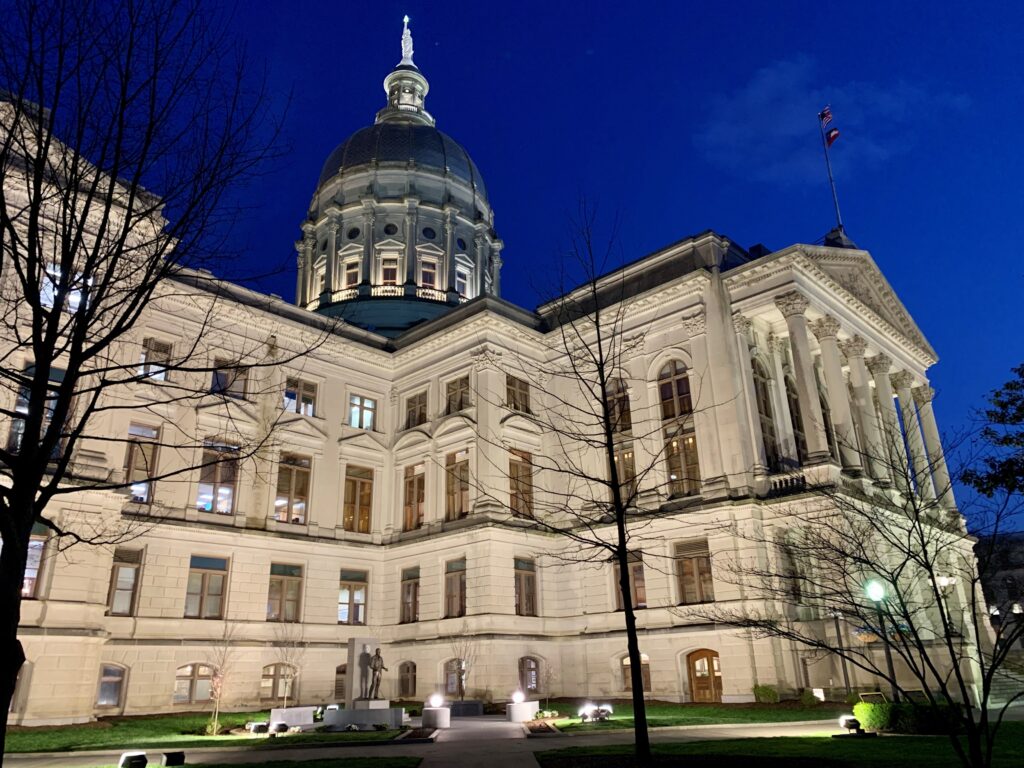
ATLANTA – As the Georgia Senate gaveled out Thursday, capping the most hectic day so far this legislative session, state lawmakers left the chamber wondering what’s next as the coronavirus outbreak grows in Georgia and the U.S.
The state legislature’s shutdown at the height of its busiest stretch due to COVID-19 is one of the strangest things to happen in the 27-year political career of Sen. Ed Harbison. He agreed lawmakers ought to disperse, but sensed the moment was unique in the history of Georgia politics.
“It is something entirely new for me,” said Harbison, D-Columbus, one of the Senate’s longest tenured members. “It’s got a funny feeling to it, I’ll tell you.”
As of Friday afternoon, 42 cases of the respiratory virus had been confirmed in Georgia and one person had died from it. State health officials have urged vulnerable populations like people age 60 and older and those with chronic health issues to avoid crowds, stock up on supplies and prepare to stay at home in the event of a worse outbreak.
The General Assembly ground to an indefinite halt after quick perfunctory floor meetings Friday morning. Lawmakers now join several school districts across the state, the national college basketball championship and the beloved Masters golf tournament in Augusta in deciding to disband for the foreseeable future.
But the legislature, which wrapped up the 29th day of its 40-day session Friday, still managed to push out numerous bills on the final “crossover” deadline by which legislation originating in one chamber must advance to the other. Lawmakers passed measures on college hazing crimes, voter precinct changes, anti-gang penalties and the ability of child abuse victims to sue as adults.
“I think we got all of our work done,” said Sen. Jen Jordan, D-Atlanta. “But it’s a mess. It’s a weird thing.”
The decision on when to resume for the session’s home stretch will be up to Lt. Gov. Geoff Duncan in the Senate and Speaker David Ralston in the House. They said jointly Friday the legislature would pick back up “at a future date to be determined.”
Legislation proposing changes to the state’s foster care system, surprise hospital billing practices and a flat fee on ride-hailing trips via Uber and Lyft hang in the balance without the General Assembly in session. Lawmakers also still need to wrap up debate and adoption of the state’s fiscal 2021 budget, which is their only legal duty under the Georgia Constitution.
Budget makers in the legislature will also be watching for signs of a slowdown in state tax collections should the virus scare send consumer spending plummeting in Georgia. Gov. Brian Kemp said this week he will pull $100 million from the state’s $2.8 billion reserves to fund coronavirus prevention and response efforts. That route is being taken over asking state government agencies to further reduce their budgets, with lawmakers already having approved millions of dollars in cuts through June 30.
Meanwhile, some state lawmakers are worrying about the impact the session’s abeyance could have on their fast-approaching bids for re-election. More than 40 sitting state lawmakers have drawn opponents in the May 19 primaries, but Georgia law forbids General Assembly members from fundraising while the legislature is in session – which, technically, it still is.
Sen. David Lucas, who faces a primary challenger in his Macon district, lamented that he and others vying to keep their seats could be at a disadvantage while the session waits in limbo.
“It has a hell of an effect on elections when your opponent can raise money and you can’t get out and campaign,” said Lucas, D-Macon. “Hell, this is campaign season. I’ve got opposition.”
For others, the danger coronavirus poses to vulnerable Georgians cast a shadow on the daily humdrum of bill wrangling at the state Capitol. Sen. Renee Unterman, who has served in the legislature since 1999, said the tense atmosphere created by the virus reminded her of how the Sept. 11, 2001, terrorist attacks brought a humbling perspective to the work involved in chiseling Georgia law.
“It’s the same exact feeling,” said Unterman, R-Buford. “Anytime there’s an emergency, automatically you become so consumed with health, safety and welfare that other things become trivial.”